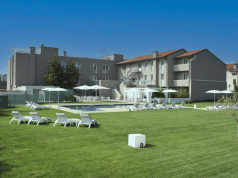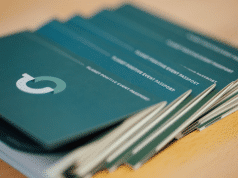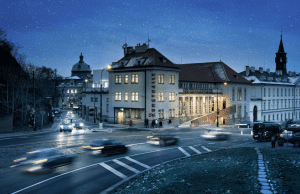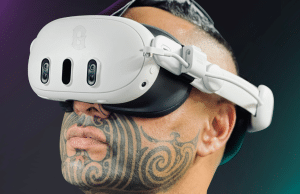“Adaptation, learning, testing, critical thinking are the qualities that are necessary for good service”
Q: Is there anything that can still surprise you in the current situation? How have you reacted to the situation from a business and personal perspective?
There will always be surprises, but the day we accept that change is the only constant, some events will become less surprising, and change will be easier to face. This change, though, was, of course, exceptional in its intensity and time period – everything stopped almost immediately, so it was a little harder to adjust so quickly and easily. I think the chaos that has arisen in the market can be a positive matter. Some negative settings have been reset and “best practice” principles that carried more negative than positive factors have disappeared. Adaptation, learning, testing, and critical thinking are the qualities that are necessary for good service. However, with best practice, it all falls into the water and is used only as a shortcut to success. In the short term, it may work, in the long term; however, it does not, and this crisis has shown that.
Q: What are the wishes of your clients – do they wish live events to return, or is the scale in favour of digital events?
From the perspective of our market and clients (which is not a large and representative sample), the vast majority want to see each other in person as soon as possible. They want to start attending physical events because they are fed up with the number of virtual events and are eager to socialise and network. While at the same time, there is a minority that has no intention of being physically present. For now, almost all of our events are digital, and the announcements prove we are still moving towards digital. Therefore, we have found ourselves in an interesting situation; we are aware of the need and some benefits of digital events, and at the same time, we want physical encounters. A good solution is a hybrid event with the physical presence of participants and lecturers and the possibility of attending online for those who are unable to attend.
Q: We cannot overlook the question regarding the future of the industry. Is the future of the industry bright? Do you personally believe it will come back stronger after the crisis?
It is ungrateful to predict anything. In my opinion, our industry has entered this crisis quite tired compared to some other industries. In the last ten years or so, there have been no significant innovations, fast-growing trends or breakthrough solutions/services. The general trend was positive and good, but there was nothing spectacular and innovative in a way that would fundamentally change the industry. This has been a fundamental change, and I think it has been better than any small innovation that improves the industry a bit. For us as a PCO, the job description as project managers has not changed. The tools we work with have changed, though. Additionally, market conditions have also changed and the intermediary relationship into which the agencies have slowly turned has almost disappeared or has been marginalized.
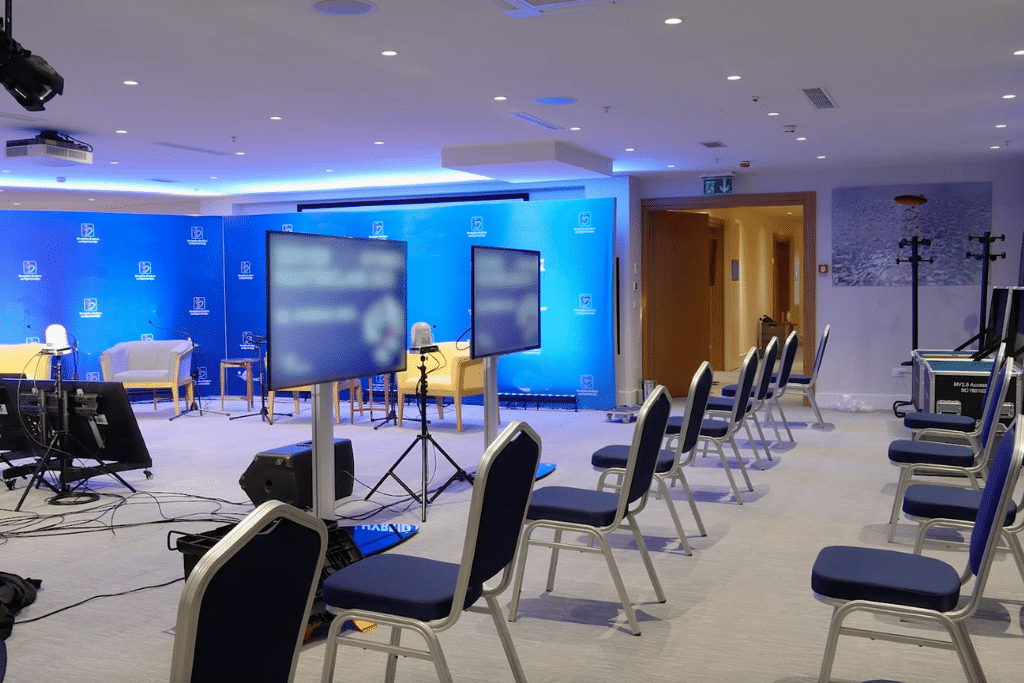
Q: Can you give us a good practice case of organising events during the corona crisis?
Without false modesty, the conference we organised in October last year with 250 people is a perfect example of how a business meeting can be organised with significantly better measures and lower risk than more casual events. We had a predefined list of participants with all the necessary contact information and statements that they were not in isolation or were in contact with the infected, all participants had their temperature measured several times a day, at the hotel entrance, in front of the halls, before meals. All paths for movement were marked, and in the hall, a distance of 2m in all directions was maintained. Registration was conducted in separate places without contact (accreditations in one place of the bag in another, etc.), while everyone was given packed masks, disinfectants, disinfection devices at every step and the premises were regularly ventilated. We had a total of more than 20 people in charge only of implementing and adhering to the measures, and the participants were extremely cooperative. Of course, the whole gathering passed without a single incident or infection. All this would not have been possible if we did not have the diligent support of the organisers to move to the physical form of organising an event.
Q: What is the best-case scenario for events in the second half of 2021? How will you ensure that events will be executed safely?
As I have already mentioned, business meetings and educational conferences are probably the most rewarding to organise from the perspective of ensuring epidemiological measures. Particularly medical education conferences, where some associations have bans on entertainment content, which automatically means that maintaining distance and other measures is not a problem. It is crucial to note that in the congress industry, we almost always know in advance who will be coming, and every step is carefully planned (arrival, registration, lecture, welcome drink, etc.). Therefore, the measures we can provide, cannot be equally safe for example, by a shopping centre or a similar place where a large number of people come without a plan or schedule. The most optimistic choice is that we start with physical events in the fall, given the high vaccination rate, especially of doctors. The restart will highly likely be in hybrid form.
Q: How effective were measures put in place by the government in your country? From the viewpoint of an event organiser, what did you expect?
It seems to me that our measures were generally very good and quite liberal, regardless of how they seemed to us. As for the events, of course, the situation here is pretty bad because all gatherings for more than 25 people are forbidden. This is a pity because epidemiological measures at business events and educational conferences can be provided significantly better than in many other places where people are allowed to gather – especially spontaneously. There was and still is a lot to be done, but the problem is that such events are currently considered “unimportant”. I would expect the public to acknowledge that not all events are the same, as not all gatherings are the same. When the whole crisis started, we proposed 7 points that we as organisers can ensure that the event is held in safe conditions, but there was no support from the whole industry, and it was a drop in the ocean of demands to the government.

Q: How has the public opinion regarding events and event organisers changed during the corona crisis?
It is hard for me to judge the opinion of the public, but I generally think they understand the problems of our industry. In general, it seems to me that events have been given the epithet of unnecessary entertainment. They were dubbed as dangerous and unnecessary fun. In my opinion that is a shame, especially during this time when people need interaction, socialising and closeness more than ever. On the other hand, it is about generalizing without much thought. All in all, in the same manner, it has changed for the worse, it will return for the better. In the end, there have always been and will always be people who will want to gather and socialise and those who shy away from it.
Q: It seems that the crisis is creating a gap between the creative and logistic part of the meetings industry. How do you see this situation?
Since we organise a lot more congresses than events in our country, the creative part of the industry came to the fore, as we had to figure out ways to attract and retain the attention of participants in virtual form in a short time. Logistics was briefly put on hold, but very quickly the demands grew and outgrew the needs up to then. Hence, on one hand, we have created ways to attract and retain participants in the virtual space, which is very demanding and challenging, and on the other hand, the logistics part, which must provide us with significantly more equipment than before on-site. This is especially true for hybrid events where we recently, for example, did a set of events every weekend where in addition to the plenary lecture from one hall, you have an additional two halls and a total of 3 parallel lectures where participants are divided into groups. Each hall is a “mini” congress for itself in terms of equipment, leadership and coordination, plus you have an extension in the virtual space. Our events have become significantly more complex and it is this connection between logistics, creativity and organisation that is probably more important than ever, particularly because of new solutions, relatively unknown to the general public.
Unfortunately, for events such as product launches, gala dinners, etc., it seems to me that creativity has been quite beaten up because it is not “desirable” at the moment. In my personal opinion, this is a shame because I think that is what people need the most right now – fun, laughter and joy.
Q: During these times, what does your regional area represent to you? In this context, how does the slogan “think globally, act locally” apply?
Absolutely perfect with the addition; think globally – act locally – act globally too! This makes us very happy because we have realized more than twenty virtual events for the entire SEE with two international companies, and we are still in negotiations with one of them. We have tried this before, but at physical events, it was very difficult, at least for us. In this situation, we have the advantage of a small market that can offer competitive prices for top service outside our region (in the EU, for example).
Q: What do you see as your greatest achievement? What are you particularly proud of, and how would you describe your exit strategy in a few words?
The biggest success is that we reacted quickly and immediately adapted to the needs of our clients. We did not wait to see the outcome of the situation, but we activated ourselves immediately. Of course, it is not all glitters and gold, as there is a bit of paranoia that there is no standing and waiting. However, in the end, we overcame the crisis well. I am especially proud of the whole team in the company because they all had to face the situation as well, practically discarding the knowledge and processes they had been creating for years and starting from the beginning. The reconsideration, insecurity and general state of shock in personal life are not easy. In fact, I think it was very difficult. However, everyone rolled up their sleeves, got to work and started practically from the beginning without any guarantees, not knowing where it was leading us and whether what we were doing was good and what our future was like. There are not enough words of praise.
Q: One last question, which we ask all our colleagues – High Tech or High Touch?
Absolutely High Touch, though I do not think one excludes the other.



